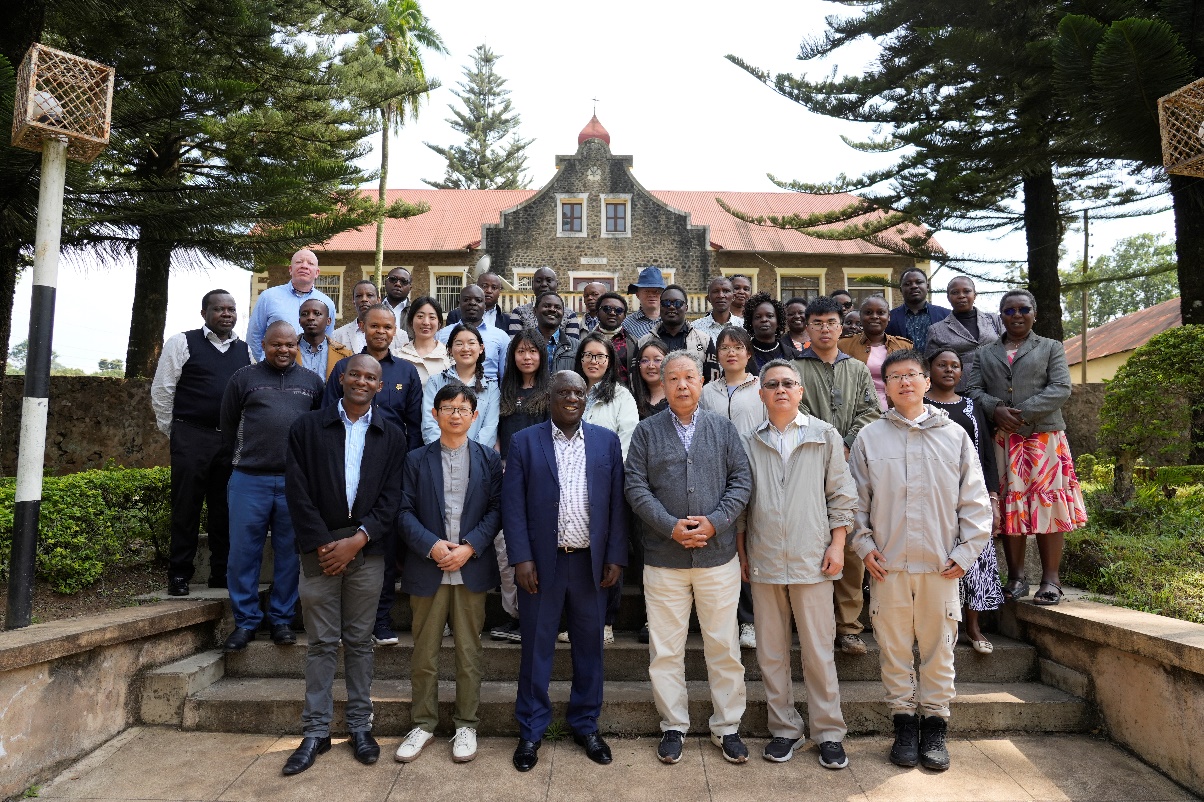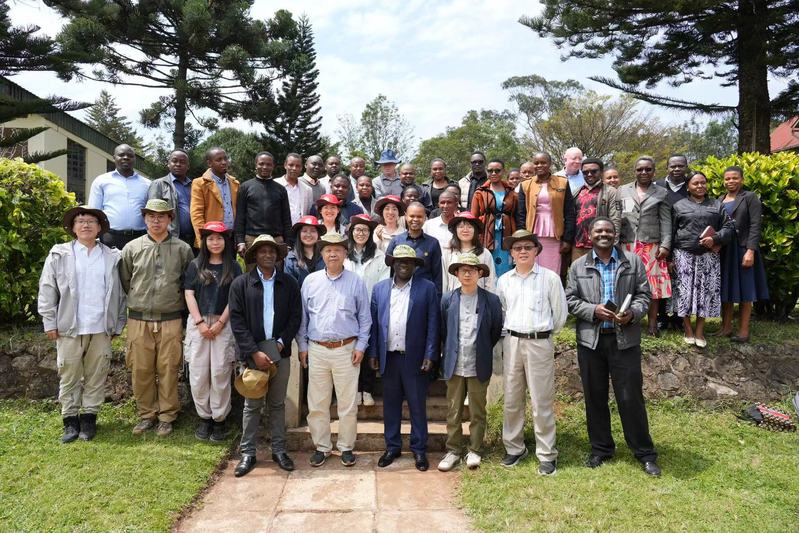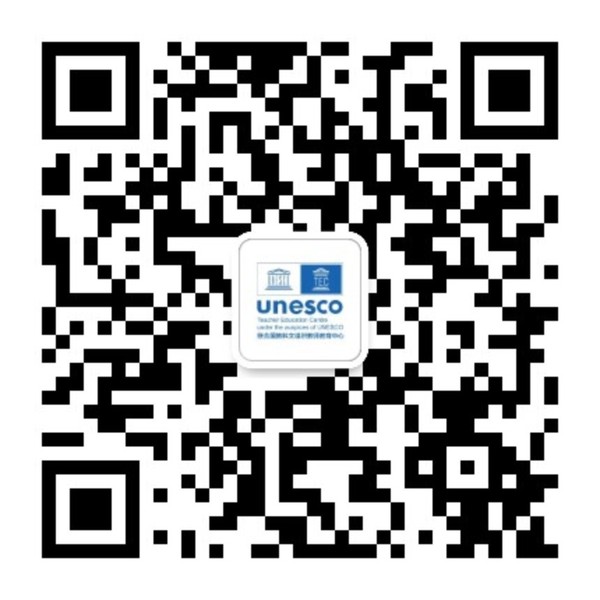From July 24 to 25, 2024, the Shanghai International STEM Education Volunteer Group (hereinafter referred to as the Volunteer Group) dispatched by the UNESCO Teacher Education Centre (TEC) conducted two consecutive Shanghai Open Classes and hosted a large-scale regional teacher workshop in Tanzania.
On July 24, in the smart classroom donated by a Shanghai technology enterprise to the Tanzania Institute of Education (TIE), a Shanghai teacher delivered a lively mathematics class to local Tanzanian primary school students. The open class, themed Kilograms and Grams, was taught by Cheng Yijun, a teacher from Shanghai Yangjing Juyuan Experimental School, with Cheng Jialei, a master’s student from Shanghai Normal University, co-designing the course and serving as teaching assistant. Over 40 Tanzanian teachers, representing local schools, attended the class in person. Through the smart classroom’s remote live broadcast system, the lesson was streamed to 3 other donated classrooms in other regions of Tanzania, where more than 50 teachers participated in the open class observation and teaching research discussions online.
In the open class, Teacher Cheng Yijun used rich multimedia resources and interactive teaching tools to vividly explain knowledge related to the mass units kilogram and gram. The core of the teaching was to help students perceive the standard unit of 1 kilogram. Through mathematical activities such as bold estimation, repeated comparison, and scientific verification, students’ perception and understanding of mass in daily life were enhanced, thereby cultivating their sense of measurement.
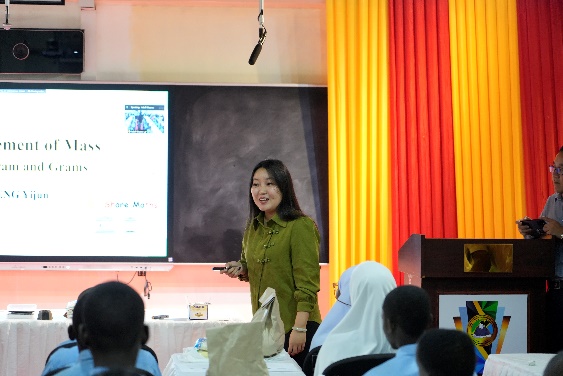
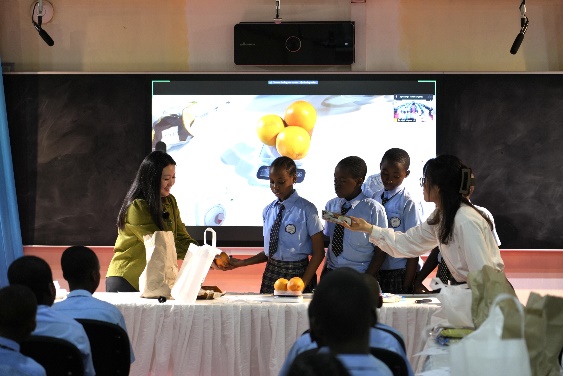
After the class, Professor Huang Xingfeng, chief expert of the Volunteer Group, organized members of the Volunteer Group and Tanzanian teachers (both on-site and online) to conduct joint teaching research activities. During the session, Teacher Cheng Yijun first elaborated on the course objectives, student activities, and improvements made to the course content after trial teaching. Following her presentation, Tanzanian teachers and Volunteer Group members divided into groups to reflect on the lesson based on observation forms. Tanzanian teachers praised Teacher Cheng’s approach to shaping students’ perception of unit mass (1 kilogram) through concrete mathematical activities and operations, gradually building their sense of measurement, as well as her vivid teaching language and demeanor. They also put forward suggestions for improvement, such as providing students with more diverse practice exercises to deepen their understanding of concepts.
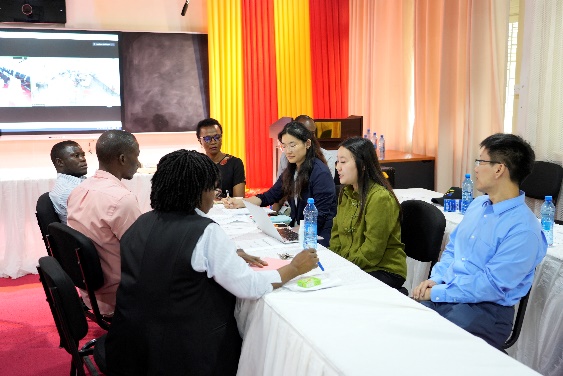
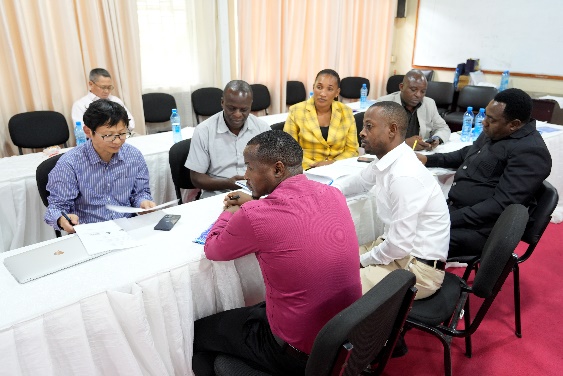
On July 25, the Volunteer Group held an open class demonstration and teaching research workshop for primary and secondary school teachers across Dar es Salaam in the auditorium of Tambaza Secondary School. The open class, themed Introduction to Pie Charts, was taught by Zhang Minxue, a mathematics teacher from the International Department of High School Affiliated to Fudan University, Shanghai. The event attracted over 150 participants, including frontline teachers, regional education department officials, and curriculum developers from Dar es Salaam. The open class was the result of careful preparation and repeated refinement. After a trial teaching at Diamond Primary School on July 17, Teacher Zhang Minxue reflected deeply during cross-cultural teaching research group activities, making significant revisions and optimizations to the course content. By adjusting teaching strategies and adding interactive sessions, she successfully conveyed complex mathematical concepts to students in an engaging manner.
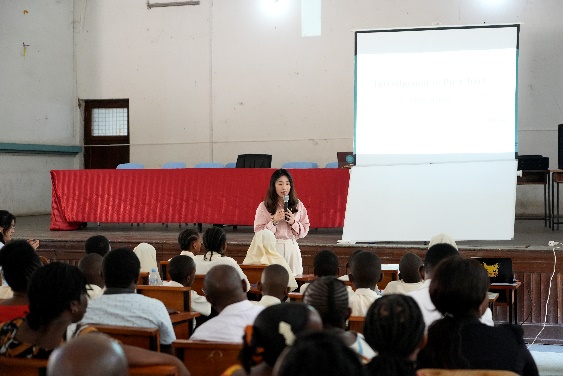
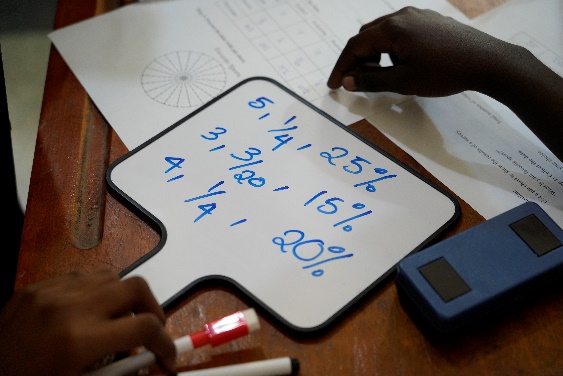
During the class, students participated actively, creating an exceptionally lively atmosphere. By guiding students to engage in group discussions and hands-on activities, Teacher Zhang Minxue made the mathematical concept of representing pie charts with percentages easy to understand and master. The entire class also went through the whole process of collecting data, organizing data, calculating, and creating pie charts. These practical activities significantly enhanced students’ data awareness and analytical abilities.
After the class, Zhang Yunji, a PhD candidate from Shanghai Normal University, provided Tanzanian teachers with a detailed explanation of specific methods and dimensions of classroom observation, using practical cases to help them better understand and apply classroom observation forms. In the subsequent teaching research activities, Tanzanian teachers discussed enthusiastically based on the observation forms, showing strong interest and enthusiasm. They noted that the class had excellent coherence, skillfully connecting prior and subsequent knowledge, and that student discussions were thorough and effective, demonstrating profound understanding and flexible application of knowledge.
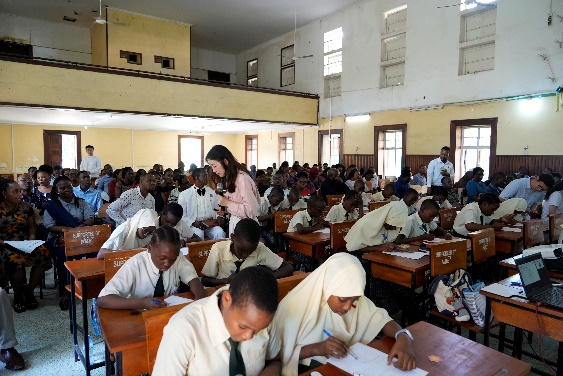
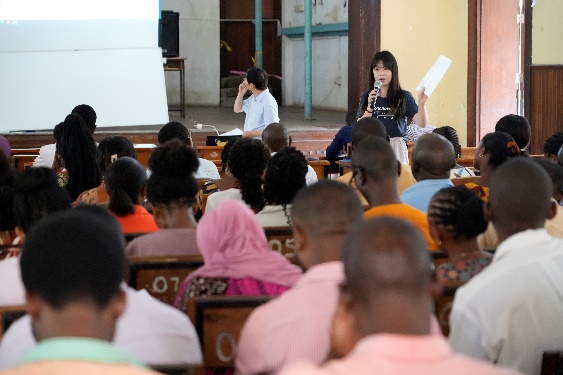
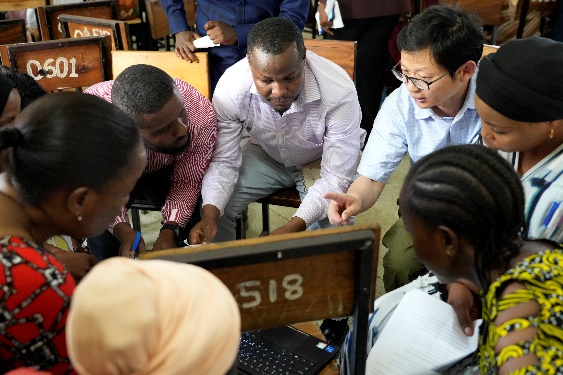
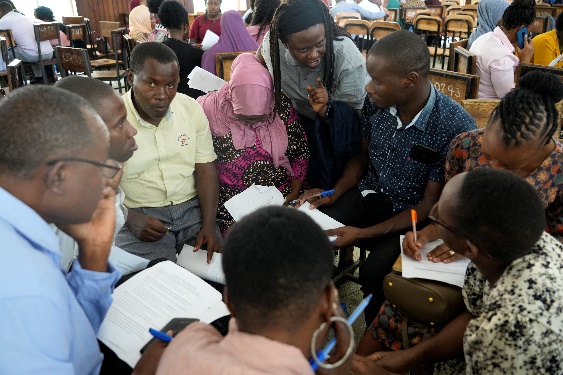
Following the teaching research activities, Professor Huang Xingfeng, chief expert of the Volunteer Group, and Zhu Jiawen, a master’s student from Shanghai Normal University, jointly introduced Variation Teaching—one of the characteristics of Shanghai mathematics education—to Tanzanian teachers. Through presenting relevant concepts and concrete cases, they explained the application of Variation Teaching in actual classrooms in a simple and understandable way, enabling Tanzanian teachers to gain a more comprehensive and in-depth understanding of this teaching method. In the interactive session, teachers from both sides actively exchanged ideas and shared their teaching experiences, further deepening mutual understanding and collaboration between Chinese and Tanzanian educators.
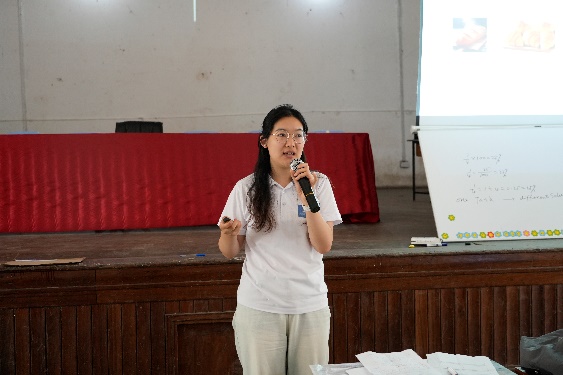
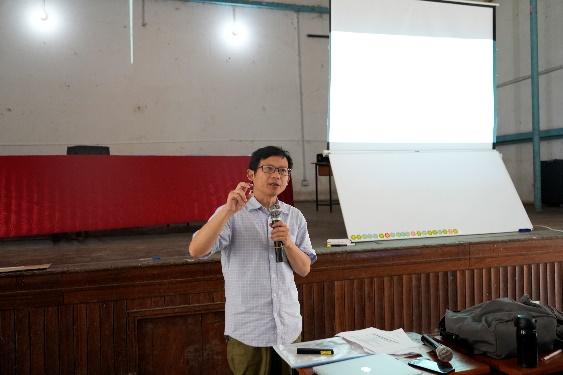
Mr. Fikson Matris, Representative of TIE and Director of the Educational Materials Design and Development Department, spoke highly of the event. He stated that the open classes and teaching research activities not only significantly enhanced teachers’ understanding of mathematics teaching but would also influence the development of mathematics education in the Dar es Salaam region at multiple levels. Mr. Matris further noted that China-Tanzania international educational cooperation had injected new vitality into Tanzanian education, helping to cultivate a more excellent teaching workforce and ultimately improving students’ academic performance. He sincerely hoped that more such localized teaching and research activities would be carried out in the future to deepen mutual understanding and learning between China and Tanzania in education and culture, and promote social progress in both countries through education.
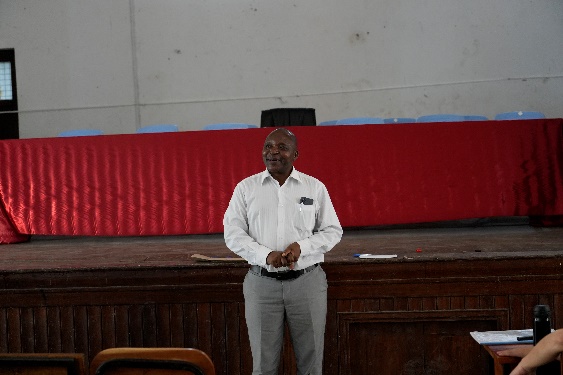
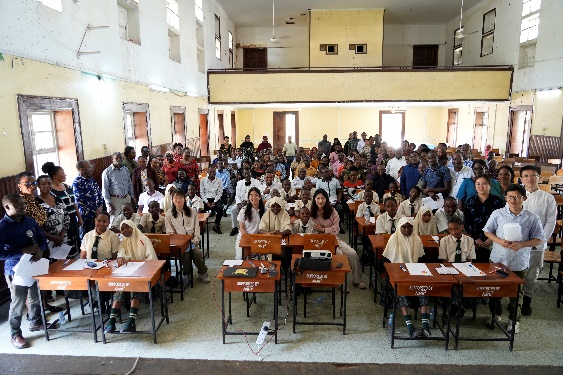
On July 26, the Volunteer Group traveled to the Arusha region in northern Tanzania to visit Monduli Teachers College and conduct educational research in rural areas of Tanzania. At the start of the event, Mr. Hebo, Vice Principal of Monduli Teachers College, gave a brief introduction to the college’s history and curriculum. Subsequently, Professor Huang Xingfeng introduced Shanghai’s mathematics education system. He elaborated on Shanghai’s innovative concepts and successful practices in mathematics education, emphasizing that mathematics education should not only impart knowledge and skills but also cultivate students’ ways of thinking and problem-solving abilities. Additionally, Shanghai’s mathematics education focuses on balancing memory and understanding, stressing that memory facilitates understanding to help students construct thinking from the concrete to the abstract. Dr. Ding Ruoxi then shared the concept and activity experience of China’s Teaching Research Group (TRG). She explained the important role of TRGs in teaching research, teacher training, and classroom practice, and presented specific forms and successful cases of TRG activities. Based on the cooperation achievements between TEC and Tanzanian partners, Dr. Ding pointed out that the integration of TRGs with Tanzanian teachers’ activities—embodied in processes such as collective research, simulated teaching, classroom observation, and collective reflection—had effectively improved Tanzanian teachers’ professional competence and teaching effectiveness. PhD candidate Hu Qi introduced the activities carried out by the Volunteer Group in Dar es Salaam and their positive outcomes.
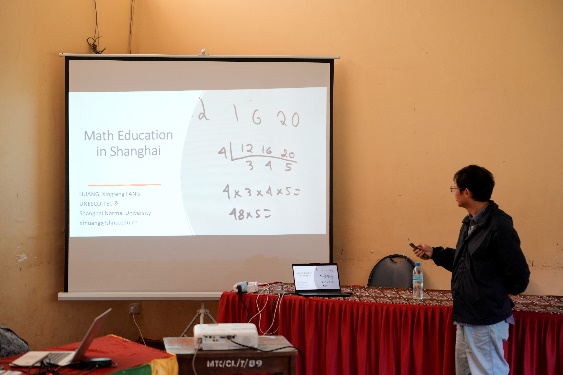
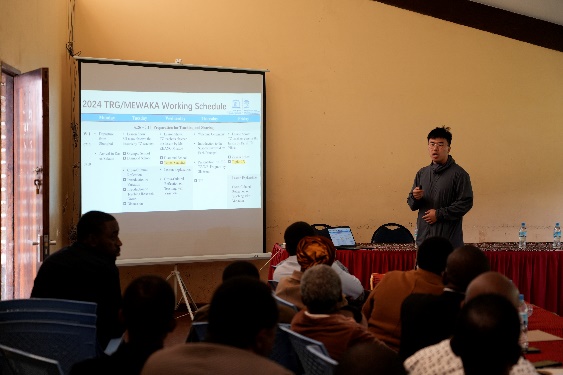
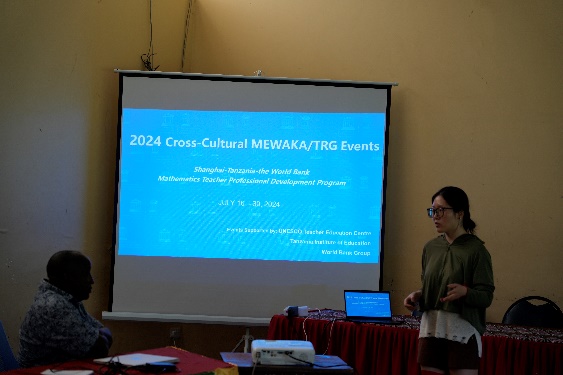
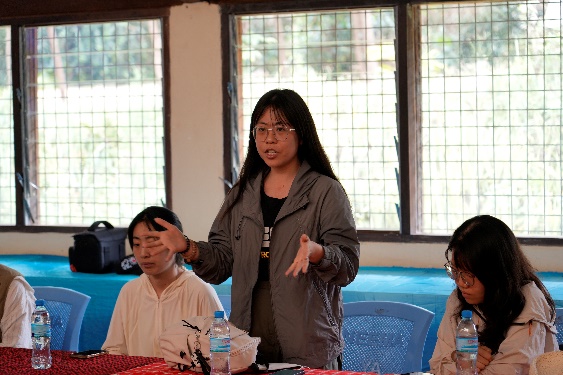
After the thematic sharing, teachers from Monduli raised questions about Shanghai’s teacher recruitment, curriculum for normal university students, and ways to organize regional teaching research activities, which were answered patiently and in detail by members of the Volunteer Group.
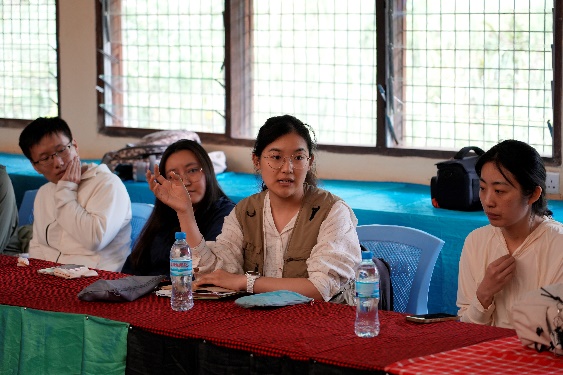
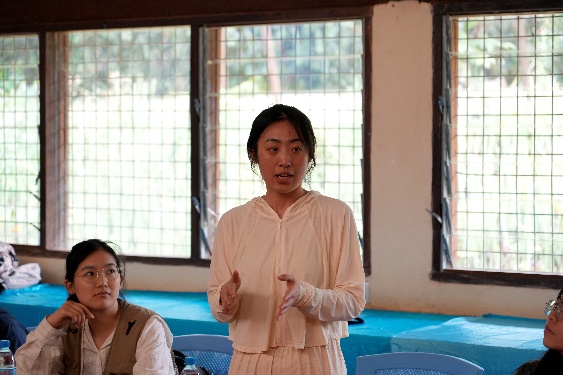
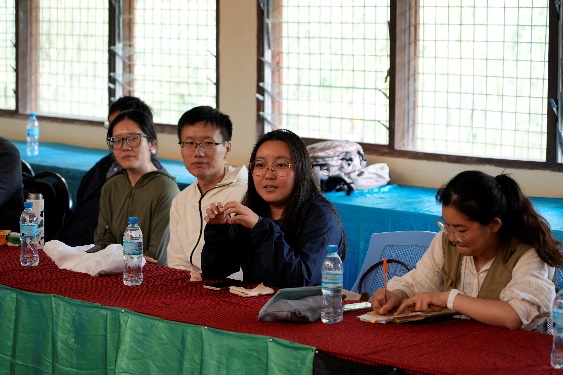
On July 29, the TEC Volunteer Group drove to Marangu Teachers College, the final research site of this Tanzania trip. Mr. Chambrila, Principal of Marangu Teachers College, and Mr. Limo, a teacher at the college, provided a brief introduction to the basic situation of Marangu Teachers College. They elaborated on the college’s history, educational philosophy, and current achievements and challenges in teacher education and training. Dr. Shen Yihua then gave an in-depth explanation of Shanghai’s education system and the characteristics of Shanghai’s mathematics education, with a particular emphasis on the ten core mathematical competencies and the Three Abilities core curriculum philosophy emphasized in Shanghai’s curriculum under the background of the new curriculum reform. Dr. Ding Ruoxi shared experiences in integrating China’s TRGs with Tanzania’s teacher professional development model MEWAKA, as well as the 成效 of these experiences in promoting the Shanghai-Tanzania Mathematics Teacher Professional Development Project. Furthermore, PhD candidate Hu Qi introduced the diverse exchange and interaction activities designed by the Volunteer Group to help Tanzanian teachers improve their teaching abilities and bring more diverse and interesting learning experiences to students. The Volunteer Group’s activities were highly recognized and appreciated by the local educational community.
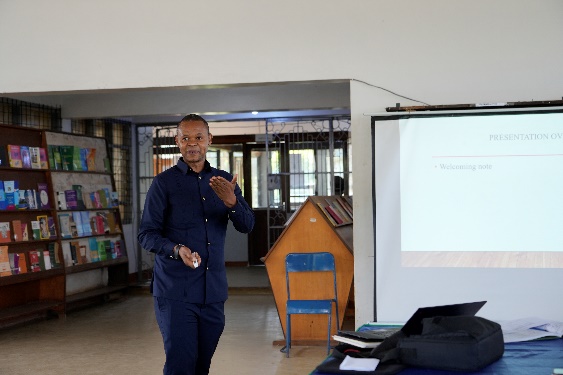
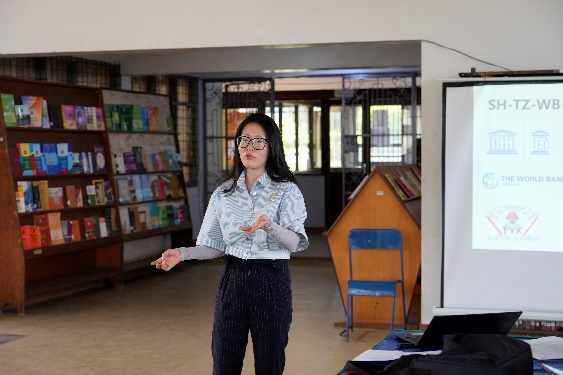
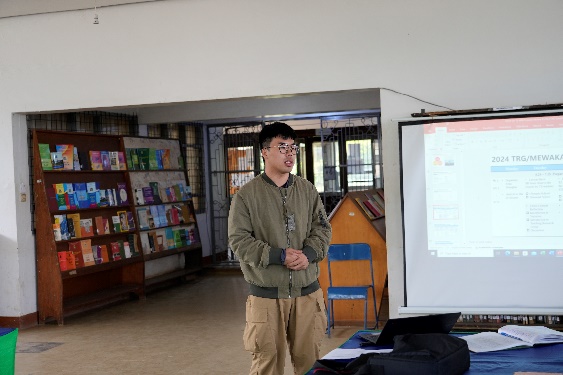
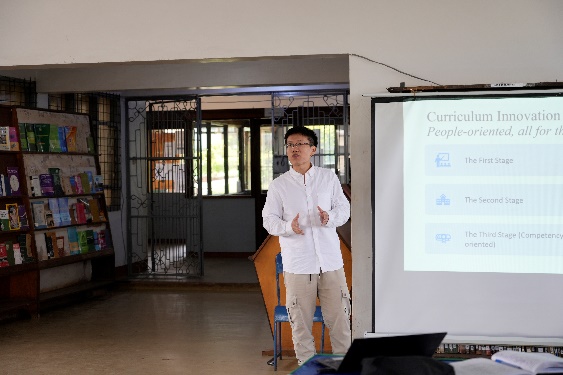
After the thematic sharing, teachers from Marangu raised questions about integrating mathematics with life practice, pre-service teacher training in Shanghai, and students’ interest in mathematics learning, engaging in interactive discussions with members of the Volunteer Group. Teachers from Marangu warmly welcomed the Volunteer Group to carry out volunteer activities in Marangu next year to gain an understanding of the real rural education in Tanzania.
